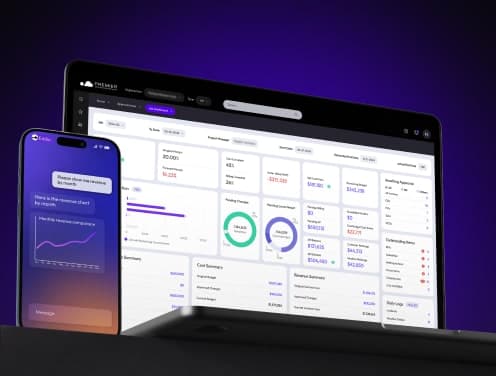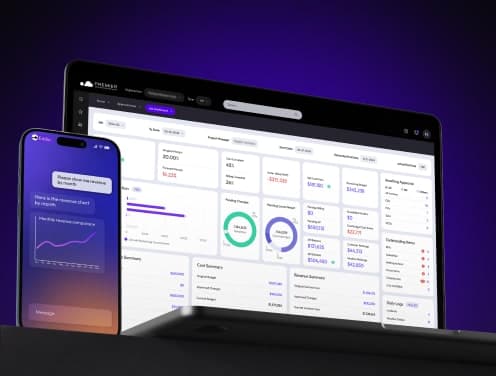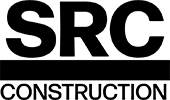
What Is Construction ERP Software: Everything You Need to Know
ERP software adoption in the construction industry is surging, with the market set to more than double—from $13 billion in 2023 to $28 billion by 2030—driven by a 14% CAGR.
This surge isn't surprising considering the sheer scale of what we're talking about – the global construction sector itself is valued at a staggering $8.2 trillion in 2022 and projected to reach $12.7 trillion by 2032.
Construction companies constantly juggle complicated moving parts – labour, materials, tools, reports, estimates, budgets, and regulatory compliance – all while adapting to unforeseen challenges.
Unfortunately, many construction ERP systems used today are outdated, which is concerning for an industry historically resistant to technological innovations. Construction ERP software provides the solution by offering better financial control through precise budgeting tools and real-time tracking of project timelines to ensure on-schedule completion.
Additionally, a well-chosen construction industry ERP helps track costs, ensure timely payments, and manage subcontractor schedules and workforce efficiently.
In this comprehensive guide, we'll walk through everything you need to know about ERP in construction – from understanding what it is and how it works to identifying the key features that can transform your operations.
Whether you're considering your first implementation or looking to upgrade existing systems, we've got the insights to help you make informed decisions.
What Is Construction ERP Software?
"An ERP system for construction industry is a specially designed software that helps construction businesses in managing their entire business operations from pre-construction to post-completion." — RheinBrücke Editorial Team, RheinBrücke is a global consulting firm specializing in ERP for construction
ERP represents a digital transformation for an industry that has historically been slow to adopt new technologies. Unlike basic accounting tools, construction ERP software is a specialized system built specifically for the unique demands of construction companies.
Definition and purpose
At its core, construction ERP software is a comprehensive and centralized system that streamlines and manages business operations throughout the entire construction lifecycle. This specialized platform integrates critical functions such as project management, payroll, equipment tracking, inventory management, and compliance into a unified database.
Construction ERP goes far beyond simple bookkeeping by providing real-time job costing, enhanced project visibility, and automated workflows. The primary goal is to integrate these various business processes—financial oversight, procurement, human resources, and project management—into a cohesive platform that boosts productivity and enhances decision-making through real-time data insights.
"The construction industry has traditionally been slow to adopt new technologies, but ERP platforms are particularly suited to the construction industry as construction is a fragmented process which combines lots of elements, teams and processes," explains industry experts.
By consolidating information in one central location, construction ERP creates a single source of truth that enhances efficiency, transparency, and collaboration across the entire organization.
How it differs from general ERP systems
General ERP systems often fall short in addressing the unique complexities of construction projects. Construction ERP stands apart through specialized features tailored specifically for the building industry.
First, construction ERP includes robust job costing functionalities that allow detailed tracking of costs for each project phase, covering labour, materials, equipment usage, and construction-specific overheads.
Furthermore, construction-specific tools like Cost Value Reconciliation (CVR) provide real-time visibility into project profitability by comparing actual costs against estimated values throughout the project lifecycle.
Second, unlike generic systems, construction ERP incorporates features tailored to manage industry-specific compliance and regulatory requirements—from safety standards to building codes and environmental regulations. These systems automate compliance tracking, manage documentation related to permits and certifications, and ensure adherence to legal requirements.
Finally, construction ERP includes comprehensive equipment and resource management tools essential for optimizing resource utilization and minimizing downtime. Contract and change order management capabilities streamline administration processes, enhance communication with clients and subcontractors, and ensure contractual obligations are met effectively.
Why the Construction Industry Needs ERP Systems
The construction industry faces distinctive challenges that generic business software simply cannot address effectively. Construction projects involve multiple teams, complex timelines, and strict regulatory requirements, making it essential to adopt specialized software aligned with industry demands.
For construction firms, the decision to implement ERP should align with their operational scale and growth aspirations. Construction companies often outgrow their initial accounting solutions and need software that effectively supports the complex financial and payroll situations they face.
Construction ERP addresses these challenges by providing:
- Detailed tracking of original budgets alongside current costs and forecasted expenses in one centralized system
- Built-in project management capabilities that combine scheduling, cost tracking, and change management
- Tools to monitor equipment usage, analyze profitability, and determine cost-effectiveness of owning versus renting
- Support for job-specific billing rules and workflows that simplify complex invoicing scenarios
- Field-driven software tools to record time, productivity, equipment usage, and expenses from jobsites daily
In essence, construction ERP coordinates disparate elements together in one system, which helps improve cost value reconciliation and avoids rework in construction projects. For modern construction companies, implementing an industry-specific ERP system isn't just about improving back-office efficiency, it's about creating a sustainable competitive advantage in a challenging industry.
Core Benefits of ERP in Construction
Introducing ERP software into your construction workflows unlocks tangible improvements that resolve common business obstacles. With 85% of construction projects exceeding their budget (often by 28%), adopting specialized ERP solutions offers a powerful way to transform operations and boost profitability.
Better project visibility and control
Construction ERP systems create a centralized repository where all project data lives and updates in real-time. This "single source of truth" immediately eliminates information silos that plague construction operations. Instead of hunting through disconnected spreadsheets or specialty applications, your team accesses current project information instantly.
Modern construction ERP systems provide powerful tools for visualizing project timelines, allocating resources efficiently, and managing documents with proper version control. Project managers can identify potential delays before they impact schedules and maintain clear communication across all stakeholders.
As a result, you'll experience more predictable project delivery, fewer disputes, and higher client satisfaction rates. Book a call with our product expert today to see how enhanced visibility can transform your project outcomes.
Real-time financial tracking
Cash flow challenges have traditionally plagued construction companies. Construction ERP software dramatically improves financial visibility through features like:
- Real-time cost tracking against estimates
- Automated billing and progress payment applications
- Integrated accounts payable with approval workflows
- Comprehensive job costing that tracks labour, material, and equipment
These capabilities allow you to identify cost overruns early rather than waiting for month-end reports. The ability to monitor costs at a very early stage means problems can be addressed before they escalate, protecting your profit margins.
Improved collaboration across teams
Construction ERP provides real-time data on project progress, resource allocation, and potential challenges. This allows different teams (design, engineering, procurement, construction) to see the bigger picture and understand how their work impacts other aspects of the project.
Moreover, with unified systems, data is entered once and accessible to all authorized stakeholders. This eliminates discrepancies that can lead to costly mistakes and rework. Field crews gain access to up-to-date plans and specifications, reducing errors due to outdated information.
Many construction ERP software platforms include mobile capabilities, allowing workers to access project data and updates on the go. This improves decision-making at job sites and eliminates delays caused by waiting for information from the office.
Fewer delays and cost overruns
When 84% of firms report construction costs higher than anticipated, preventing overruns becomes critical. Construction industry ERP helps by providing:
First, enhanced budgeting tools track project costs in real-time, offering detailed insights into spending trends and variances. Teams can adjust expenditures proactively, preventing budget overruns before they occur.
Second, advanced scheduling optimizes resource allocation, ensuring the right people, equipment, and materials are available when needed. This minimizes downtime and maximizes productivity.
Lastly, many construction ERP systems offer risk management modules that identify potential issues early in the project lifecycle. Automated alerts and recommendations enable teams to act quickly, preventing minor issues from becoming major disruptions.
Key Benefits of ERP Construction Software
Modern ERP software for the construction industry consists of integrated modules designed to address specific operational needs. These systems provide the foundation for efficient project execution and financial control through several key components.
Project management tools
Construction ERP systems include powerful software tools for planning, scheduling, and executing projects with precision. These components offer interactive charts for visualizing project timelines and dependencies, resource allocation optimization, and document management with version control. Additionally, automated workflows guide teams through standardized processes, all accessible via mobile devices, so field teams can report progress and issues in real-time.
Financial and accounting modules
The financial backbone of construction ERP systems provides comprehensive tools for managing complex project finances. These modules handle accounts payable, accounts receivable, and general ledger functions within a unified platform. Job costing capabilities track all expenses associated with individual projects, from labour and materials to overhead costs. Consequently, this transparency allows financial managers to understand the financial health of a project at every stage.
Procurement and supply chain
Effective construction ERP software streamlines the entire procurement process by creating purchase orders, tracking inventory, and forecasting material requirements. Key benefits include:
- Real-time monitoring of stock levels to prevent shortages
- Vendor rating and performance tracking
- Route optimization for reduced transportation costs
- Automated financial reporting for improved budget management
Labour and equipment tracking
Workforce management remains vital for construction profitability. Construction industry ERP systems provide specialized tools for time tracking with job and phase coding, skills and certification management, and crew composition tracking. Simultaneously, equipment modules monitor utilization rates, schedule preventive maintenance, track repair history, and optimize fleet composition.
Compliance and safety management
Construction ERP platforms help contractors navigate complex regulatory requirements through automated tracking of insurance certificates, management of subcontractor qualifications, and storage of safety records. These systems support adherence to OSHA requirements through proper training documentation and ensure that job sites follow rigorous safety protocols.
Reporting and analytics
Ultimately, the data captured throughout the system powers sophisticated analytics capabilities. Role-based dashboards provide customized views for managers, financial controllers, and field supervisors. Meanwhile, drill-down capabilities reveal the details driving decisions, helping executives identify the most profitable project types, productive crews, and accurate performance benchmarks for future estimates.
Modern Features to Look For
Today's ERP software for the construction industry must incorporate advanced technologies that address the unique challenges of modern construction management. When evaluating construction ERP systems, these five features stand out as essential for forward-thinking companies.
Cloud-based access
Cloud-based construction ERP software eliminates the need for costly servers and IT maintenance while providing automatic updates and robust security. This approach ensures teams can access critical data anytime, anywhere, from any device. Hence, cloud architecture supports easy scaling of capabilities across multiple projects and regions. This flexibility proves especially valuable for large, distributed construction projects where real-time collaboration is essential.
Mobile functionality for field teams
Mobile capabilities empower field crews with direct access to the ERP system, ensuring everyone works with identical data. Field teams can capture and submit time entries, receipts, and daily logs of activity directly from construction sites.
Subsequently, managers can review information and approve workflows while traveling or away from the office. The most effective mobile applications work on both iOS and Android platforms with offline modes for job sites with inconsistent Wi-Fi connectivity.
AI and predictive analytics
AI in construction ERP systems analyzes massive amounts of data in real time to uncover patterns and provide insights. These tools evaluate multiple schedule scenarios with detailed resource and cost information to guide decision-making. Furthermore, AI algorithms can build baseline schedules in hours rather than days, reducing preparation time. Advanced analytics also support optimized workforce planning through predicting labor shortages and recommending optimal staffing levels.
IoT for equipment and material tracking
IoT integration with construction industry ERP ensures minimal downtime and efficient resource utilization. Smart sensors monitor machine performance, detecting gradual declines that might indicate maintenance needs. Altogether, this technology enables real-time equipment monitoring, tracking, and management from any location. The combination of IoT with ERP also enhances asset tracking through solutions like RFID tags that automatically record material details.
Cybersecurity and data protection
Given that construction ERP systems store sensitive business data, robust cybersecurity is non-negotiable. Effective protection includes multi-factor authentication, data encryption both at rest and in transit, and strong access controls. Additionally, network protection through firewalls and intrusion detection systems helps monitor and safeguard against threats. Regular security updates and patches can be deployed quickly in cloud-based solutions, reducing vulnerability to cyberattacks.
Choosing the Right ERP for Your Business
Selecting the ideal ERP software for construction industry involves careful evaluation of several crucial factors to ensure optimal return on investment.
Custom vs subscription-based ERP
Custom ERP systems are built specifically for your unique workflows and business processes, offering complete ownership and tailored features. Initially, they require higher investment but eliminate recurring fees. In contrast, subscription-based solutions provide faster implementation with predictable monthly costs. However, these ready-made systems may lack the flexibility needed for specialized construction workflows.
Scalability and future growth
Your ERP solution should evolve alongside your business. Look for systems that can handle increased project volumes without performance issues. The right platform allows adding new users, incorporating additional modules, and adapting to changing market demands. As construction projects scale in complexity, you need technology that won't become obsolete.
Integration with existing tools
Effective ERP must connect seamlessly with your current technology ecosystem. Evaluate potential solutions for their ability to integrate with accounting software, project management tools, and procurement systems. Open API interfaces ensure versatility in connecting with complementary technologies.
User experience and training needs
Well-designed interfaces reduce learning curves and resistance to change. Personalized dashboards tailored to specific roles improve adoption rates. Book a call with our product expert today to understand how comprehensive training programs and ongoing support are crucial for maximizing your ERP investment.
Premier Construction Software: A Modern ERP for Builders
Premier Construction Software solves common challenges in construction management. This complete ERP system stands out with its advanced AI capabilities and mobile-first approach to project management.
AI-powered resource allocation and forecasting
Premier's AI technology changes resource management in construction projects. The system analyzes historical and immediate data to predict potential risks and delays. This helps you make proactive decisions about resource distribution. The predictive capability helps you:
- Identify bottlenecks early
- Adjust resources promptly
- Keep projects on schedule
- Minimize costly disruptions
The AI engine learns from each project and refines its resource allocation strategies. Your outcomes get better with each new construction project. Premier's AI can also spot patterns to determine the best deployment strategies for machinery and equipment. This extends their useful life and controls costs.
Real-time dashboards and mobile access
Premier's dashboard technology shows you project performance instantly. You can monitor progress through visual representations that update automatically. These dashboards refresh as tasks, teams, and projects move forward. You won't need complex spreadsheets or manual reporting anymore.
Mobile functionality is the life-blood of Premier's approach. The cloud-based platform lets your field teams:
- Capture daily site data from their devices
- Track equipment hours immediately
- Access current project information anywhere
- Submit and route invoices digitally
Mobile access connects office and field operations seamlessly. Premier gives everyone the information they need to work efficiently, whatever their location.
Case example: Reducing project overruns with Premier
Premier Construction Software's ground impact shines through its client success stories. J. Corsi Developments cut their administrative time by 50% with Premier. They also reduced reporting time by 25%, which helped them take on more work confidently.
Max Construction now saves over 30 hours weekly and has improved project efficiency by 40%. Growing construction businesses can eliminate multiple disconnected systems with Premier's cloud-based ERP solution. J. Corsi used to struggle with separate accounting software and a job costing system before moving everything to Premier.
Richard Corsi, Vice President at J. Corsi Developments says: "The time savings Premier affords is great, and really allows us to confidently take on more work knowing we have the backing of a solid software system".
Key Takeaways
Construction ERP software is transforming how construction companies manage complex projects, with the market expected to double from $13 billion to $28 billion by 2030. Here are the essential insights every construction professional should know:
• Construction ERP differs from generic systems by offering specialized features like job costing, equipment tracking, and compliance management tailored specifically for construction workflows.
• Real-time financial visibility prevents cost overruns through automated tracking of labor, materials, and equipment costs against project budgets, helping address the industry's 85% budget overrun rate.
• Cloud-based mobile functionality empowers field teams to access project data, submit time entries, and update progress directly from job sites, eliminating information silos.
• Modern ERP systems integrate AI and IoT capabilities for predictive analytics, equipment monitoring, and automated scheduling that can build baseline schedules in hours rather than days.
• Choose scalable solutions with strong integration capabilities that can grow with your business and connect seamlessly with existing accounting, project management, and procurement tools.
The right construction ERP system becomes your operational backbone, providing the single source of truth needed to deliver projects on time, within budget, and with improved profit margins in today's competitive construction market.
FAQ
Q1. What is Construction ERP software and how does it differ from general ERP systems? Construction ERP software is a specialized system designed to manage the unique complexities of construction projects. Unlike general ERP systems, it includes features tailored for the building industry such as job costing, equipment tracking, and compliance management specific to construction workflows.
Q2. How does Construction ERP software improve financial management in construction projects? Construction ERP software enhances financial management by providing real-time tracking of costs against budgets, automated billing and payment applications, and comprehensive job costing. This allows companies to identify cost overruns early, protect profit margins, and make data-driven financial decisions throughout the project lifecycle.
Q3. What are the key components of a Construction ERP system? The key components of a Construction ERP system typically include project management tools, financial and accounting modules, procurement and supply chain management, labor and equipment tracking, compliance and safety management, and reporting and analytics capabilities.
Q4. How does mobile functionality in Construction ERP software benefit field teams? Mobile functionality in Construction ERP software allows field teams to access project data, submit time entries, update progress, and report issues in real-time directly from job sites. This improves collaboration, reduces information delays, and ensures all team members work with the most up-to-date information.
Q5. What modern features should companies look for in Construction ERP software? When selecting Construction ERP software, companies should look for cloud-based access, robust mobile functionality, AI and predictive analytics capabilities, IoT integration for equipment and material tracking, and strong cybersecurity measures. These features ensure the software can adapt to evolving industry needs and provide a competitive advantage.





















